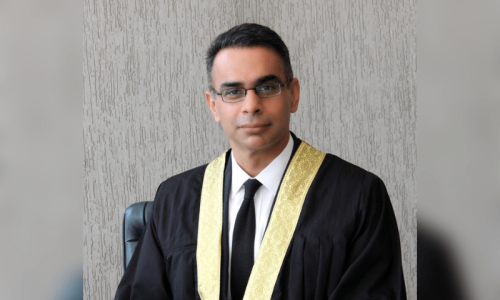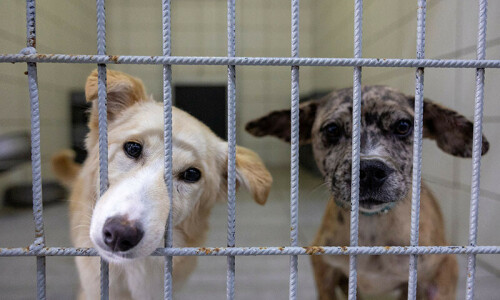WASHINGTON, Nov 12: US scientists warned on Friday that the full-body, graphic-image X-ray scanners that are being used to screen passengers and airline crews at airports around the country may be unsafe.
“They say the risk is minimal, but statistically someone is going to get skin cancer from these X-rays,” Dr Michael Love, who runs an X-ray lab at the department of biophysics and biophysical chemistry at Johns Hopkins University school of medicine, said.
“No exposure to X-ray is considered beneficial. We know X-rays are hazardous but we have a situation at the airports where people are so eager to fly that they will risk their lives in this manner,” he said.
The possible health dangers posed by the scanners add to passengers and airline crews’ concerns about the devices, which have been dubbed “naked” scanners because of the graphic image they give of a person’s body, genitalia and all.
A regional airline pilot last month refused to go through one of the scanners, calling it an “assault on my person” and a violation of his right to privacy.
The Transportation Security Administration (TSA) began rolling out full-body scanners at US airports in 2007, but stepped up deployment of the devices this year when stimulus funding made it possible to buy another 450 of the advanced imaging technology scanners.
A group of scientists at the University of California, San Francisco (UCSF) raised concerns about the “potential serious health risks” from the scanners in a letter sent to the White House Office of Science and Technology in April. Biochemist John Sedat and his colleagues said in the letter that most of the energy from the scanners is delivered to the skin and underlying tissue.
“While the dose would be safe if it were distributed throughout the volume of the entire body, the dose to the skin may be dangerously high,” they wrote.
The Office of Science and Technology responded this week to the scientists’ letter, saying the scanners have been “tested extensively” by US government agencies and were found to meet safety standards.
But Sedat said on Friday that the official response was “deeply flawed.” “We still don’t know the beam intensity or other details of their classified system,” he said, adding that UCSF scientists were preparing a rebuttal to the White House statement. Some 315 “naked” scanners are currently in use at 65 US airports, according to the TSA.—AFP













































Dear visitor, the comments section is undergoing an overhaul and will return soon.